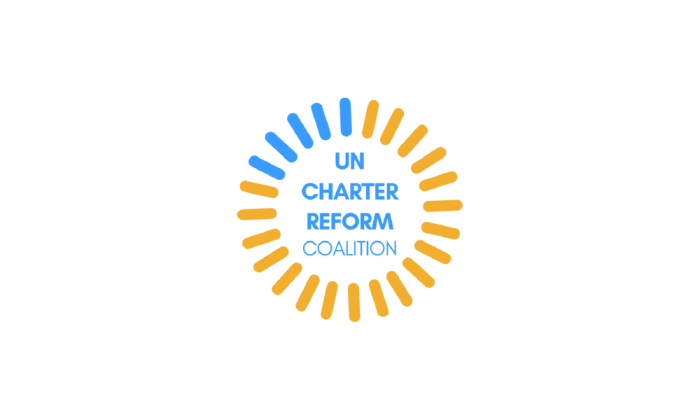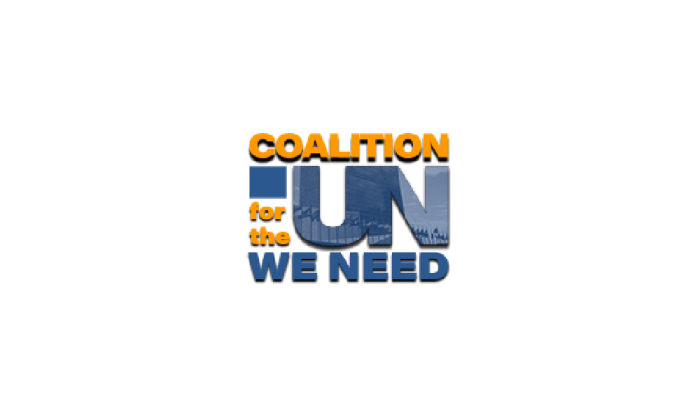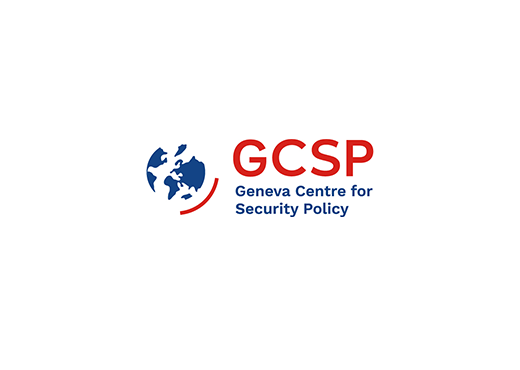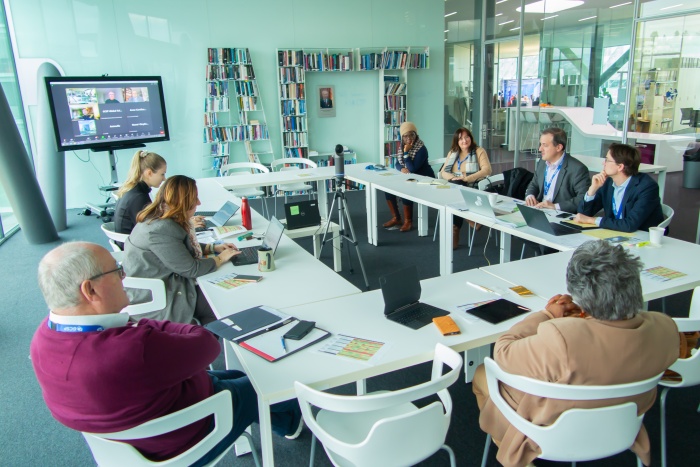The Creative Spark
Turning Vision into Impact
At the GCSP, we believe that bold ideas rooted in experience can create a more peaceful and secure world. Creative Spark is GCSP’s incubator and accelerator for senior professionals dedicated to transforming innovative concepts into practical, high-impact solutions. Through tailored mentorship, collaborative networks, and hands-on support, we help turn visionary ideas into sustainable projects that advance global peace and security. Drawing on real-world insights-including both successes and failures-we drive applied research and deliver forward-thinking strategies for lasting impact worldwide.
Why join the GCSP’s Creative Spark?
In today’s complex and polarized international security landscape, the Creative Spark stands out as a uniquely neutral and inclusive incubator, accelerator and hosting platform. Rooted in Swiss values of neutrality, independence, and collaboration, and inspired by the Esprit de Genève, our programme leverages Geneva’s legacy as a global hub for diplomacy to address the world’s most pressing challenges-spanning peace, security, health, human rights, humanitarian response, trade, and finance.
Our fellows gain access to:
- A safe, risk-free innovation space to experiment, test, and refine solutions, guided by an international network of seasoned experts
- Opportunities to break down silos and collaborate across disciplines, sectors, and cultures
- GCSP’s world-class learning ecosystem, with tools and training in leadership, strategic foresight, and policy innovation
We invite candidates with promising, impact-driven ideas in international peace and security to join our up-to-12-month programme designed to accelerate innovation and maximize real-world impact. As a Creative Spark fellow, you will receive tailored, hands-on support to move your idea from concept to execution, including:
- Collaborative office space in the heart of Geneva
- Business and marketing strategy development
- Legal and operational guidance
- Media outreach and visibility support
- Financial and accounting management
- Expert-led training, mentorship, and workshops
- Strategic networking with global leaders and peers
The Creative Spark empowers change-makers to take bold action, think strategically, and deliver solutions that create lasting impact for a more peaceful and secure world. Join us to transform your vision into reality-where your ideas become global solutions.
Currently incubated project in the Creative Spark:
UN Charter Reform Coalition
The UN Charter Reform Coalition mobilizes United Nations Member States to revise the UN Charter such that it is better equipped to address today’s challenges; is empowered to deliver on the UN’s principles; and more equitably distributes power.

Coalition for the UN We Need (C4UN)
C4UN is dedicated to advancing a new, inclusive multilateralism that prioritizes justice, partnership, and the well-being of all humanity by strengthening global cooperation and ensuring that the United Nations delivers effectively for present and future generations.

Our Humanitarian Heritage: the Geneva Conventions
This initiative seeks to raise global awareness and foster respect for international humanitarian law —among civil sociey and especially among youth -through international mobilization and creative public engagement centered on the enduring value and universal principles of the Geneva Conventions.

Some of the ideas that the Creative Spark helped develop are the following:
The Foundation for Humanitarian Action at Sea aims to mitigate the global humanitarian crisis at Sea by facilitating high-level dialogues, coordinating research and advocacy on maritime migration routes, and expanding Search and Rescue (SAR) operations at a global scale.
Developed at the Stimson Centre and recipient of the first edition GCSP Transformative Futures in Peace and Security Prize, the GGIN's new Global Governance Innovation Project (GGIP)– consisting of an annual Global Governance Innovation Report, Index & Survey – was incubated in the Creative Spark in the beginning of 2024. The GGIP explores and measure progress in global governance, including by carefully comparing national leadership within multilateral institutions and assessing their change over time. The project also examines the growing capabilities of new voices, tools, networks, knowledge, and institutions in global governance—to better cope with a variety of 21st century challenges. Thanks to the incubation in our Creative Spark, the project leaders refined their concept through collective intelligence and built up their network in International Geneva with, inter alia, two events held at the GCSP: an informal breakfast with Civil Society Representatives and Scholars and a high-level round table with UN Member States on Collective Security and the Universality of Conflict Prevention.
A public-private partnership, GCERF was established to serve as the first global effort to support local, community-level initiatives aimed at strengthening resilience against violent extremist agendas. Operating at the nexus of security and development, GCERF is committed to working in partnership and consultation with governments, civil society, and the private sector in beneficiary countries to support national strategies to address the local drivers of violent extremism.
The Climate Action Accelerator (CAA) is a new, non-profit initiative, launched with the aim to mobilise large-scale climate action. Its goal is to help as many organisations as possible to directly halve their emissions by 2030, in line with the Paris Agreement.
IDE4 is a non-profit association established with a distinct mission: to propel the domains of data analytics and visualization in service to academia, International Geneva and the SDGs. By cultivating a dynamic ecosystem of developers, institutions, and enthusiasts, IDE4 promotes open-source solutions, particularly their innovative visual analytics platform, CSX, conceived at CERN.
MAP is a creative consulting and talent agency representing top media and arts professionals from conflict zones and diaspora communities. They train and consult on the strategic application of media and arts for transformational social change.
Cyber-aid is a people public private collaboration on cyber-security, artificial intelligence and digital. They help individuals, companies and municipalities learn about new technologies, anticipate changes together and adapt and grow.
What does the Creative Spark offer its partners
With our 25 years’ experience in the fields of peace and security, we help our partners identify promising forward-looking solutions and transformational ideas for a more peaceful future. We know the needs and challenges in these fields and we therefore are able to assess for you the most innovative and impactful projects that will make their mark and change the trajectory of the future.

Do you want to have an impact on peace and security?
Do you want to leave your mark on history?

